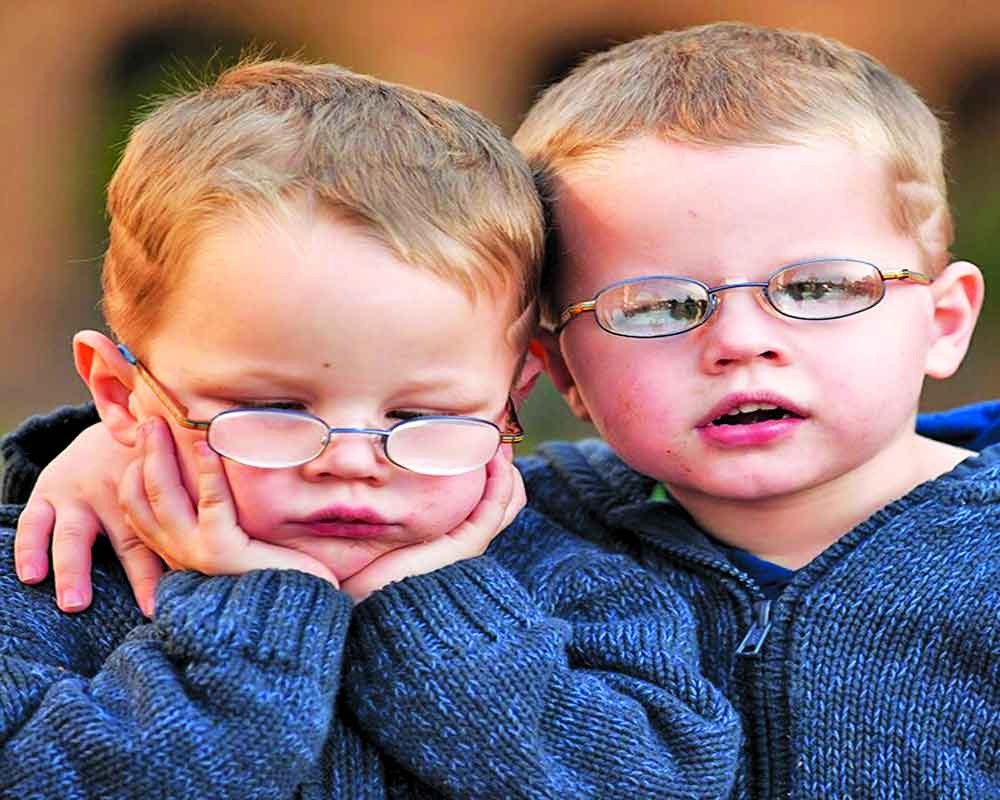Early interventions can curb it as 75 per cent of visual impairments are curable
Blindness in childhood has far-reaching consequences for the affected child and family as it has a significant impact on educational, employment, personal, and social prospects throughout life. India houses the largest number of blind children in any one country. There are 9.3 million visually impaired and 270,000 blind children in India.
The current prevalence of blindness in children is known to be around 0.8/1000. However, over 75 per cent of all visual impairment can be prevented or treated. Directing investment towards addressing the growing economic burden of childhood blindness is an imperative step towards preventing avoidable blindness.
In a study conducted by Orbis, led by Dr. (Prof.) B. R. Shamanna, Professor, School of Medical Sciences, University of Hyderabad and Sunny Mannava, Research Scholar, School of Medical Sciences, University of Hyderabad, it has been indicated that the country loses an estimated $118 billion annually in cumulative gross national income (GNI) due to childhood blindness. The report titled ‘Cost-Benefit Analysis of Investing in Child Eye Health’ is based on the 2020 estimates and reflects the economic losses incurred by India due to lost productive years as a result of childhood blindness spanning over a period of 35 years, and rising to $158 billion for 40 working years.
The study has been categorized into three phases, namely updating the economic burden of childhood blindness post 1998, determining the utility weights for each child’s eye health conditions, and measuring the quality of life of those with childhood blindness and visual impairment, using the utility measures developed.
Other findings in the report include an increase of direct GNI loss due to blindness from Rs 496 billion in 1997 to Rs 768 billion in 2020; an increase of 35 per cent in the economic productivity of blind persons to $835 million in 2020 compared to 1997 estimates; 35 per cent of blindness in children and 82.3 per cent of blindness in adults is preventable and treatable; hospitalization rate for eye ailments in India stood at 3.6 per 1,000 people in rural areas and 3.5 per 1,000 people in urban areas annually; caregivers spend 50 per cent of the time taking care of children leading to a total indirect cost of Rs 167 billion ($2.2 billion).
Children who are born blind or who become blind and survive have a lifetime of blindness ahead of them, with all of the emotional, social, and economic costs that come with it for the child, his or her family, and society. Many causes of childhood blindness are treatable or preventable.
Developing a cadre of trained healthcare professionals and strengthening infrastructure to deliver quality children’s eye care at various levels of care play a critical role in mitigating childhood
blindness. Moreover, establishing mechanisms to identify and treat children with eye ailments early on are also essential to this end. This is particularly true for India, where a major chunk of childhood blindness is caused by preventable conditions.
Many of the causes of corneal scarring in children could be avoided if the following eight primary health care elements are strengthened: immunisation services, maternal and child health care, health education, good nutrition, essential drugs, clean water and sanitation, endemic disease control, and treatment of common conditions. Effective communication with the children and their parents is also necessary to ensure seamless understanding and delivery of care.
Advocacy and policy engagement remain essential to measure and project the burden of blindness and seek continued support and budgetary allocation.
(The author is Country Director, India, Orbis)
























